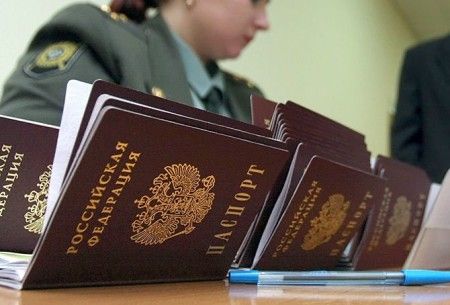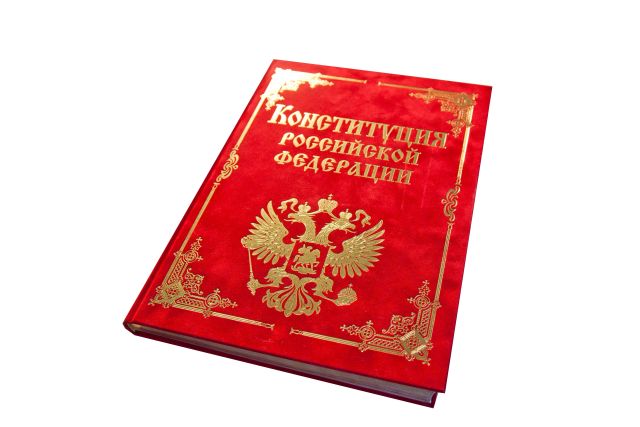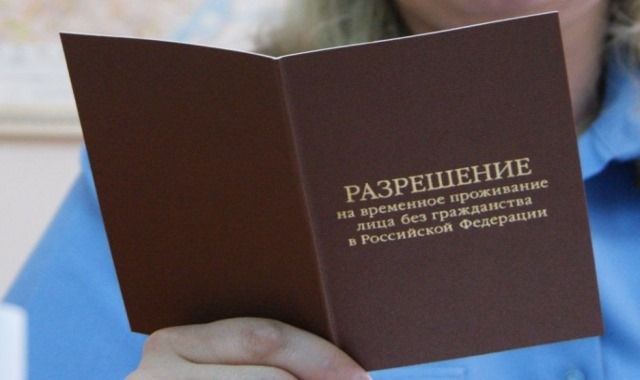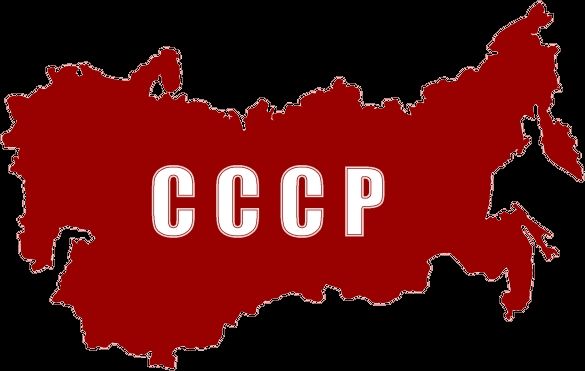Who is recognized as a stateless person in the Russian Federation?
 How to obtain citizenship for a stateless person?
How to obtain citizenship for a stateless person? Citizenship is one of the most important characteristics of a person. It determines which country a person is a resident of, and also gives a citizen a lot of rights when staying in a country of which he is a citizen. Citizenship of the Russian Federation is no different from any other - residents of the Russian Federation with the status of a citizen have the right to live, work, receive assistance in public services and much more.
However, not everyone who lives in Russia has citizenship. These are either citizens of foreign states residing in the Russian Federation temporarily, or stateless people- stateless persons. The status of a stateless person is very interesting from a legal point of view, since it both gives some rights and restricts a person quite strongly. In this article, we will talk about how a stateless person completes all the necessary documents and becomes a full-fledged citizen of the Russian Federation.
Not every person who does not have the status of a citizen of the Russian Federation is recognized as a stateless person. Thus, stateless citizens of a foreign state who arrived from abroad in the Russian Federation have the status of a “foreign citizen”, which gives both certain rights and obligations. Also, a person who fled from his homeland for some reason is not recognized as a stateless person - in Russia such a person can enjoy some special advantages.
Thus, a stateless person is an individual who, due to some circumstances, does not have citizenship at all. In total there are five categories of stateless persons:
- not yet granted citizenship. A newly born child will not, in fact, be a citizen until his citizenship is confirmed by his very first document - a birth certificate. However, due to the fact that the certificate is issued almost immediately, the newborn is considered a stateless person in a matter of hours. It is quite another matter if his parents are also considered stateless. In this case, the child will receive citizenship after the birth certificate is issued;
- Relinquished citizenship. The procedure for renunciation of citizenship is very common when moving to another country. If the law does not allow dual citizenship, then the departing person will have to surrender all their documents and thus obtain the status of a "stateless person", which will allow him to freely move to another country;
- Forcibly deprived of citizenship. A very rare category of people whom the state has deprived of their status for one reason or another. As a rule, such citizens are almost immediately deported from the country, and their citizenship will no longer be restored;
- Foreigners deprived of their citizenship in connection with any violations. Violations that may lead to deprivation of citizenship may include the provision of forged documents, fictitious marriage with a citizen of the Russian Federation, errors in filling out applications, and so on. As it is right, this type of deprivation of citizenship can be appealed in court;
- Persons who lost their citizenship as a result of the disappearance of the country. Oddly enough, there are a lot of such people. For example, a huge number of people lost their citizenship when the USSR disappeared. Now there are not very many such individuals, and they can obtain citizenship in a simplified manner.
 Rights of stateless persons and their obligations
Rights of stateless persons and their obligations As mentioned earlier, the status of "Stateless Person" has some features that distinguish it from refugees, foreigners or citizens of the Russian Federation. However, a stateless person has all the most basic rights that the Constitution provides. That is, he can seek medical help, write statements to law enforcement agencies and much more.
The problems associated with statelessness begin first and foremost in everyday life. Thus, stateless persons cannot hold certain positions that impose certain responsibilities or duties on a person. Also, stateless persons may face a problem with official employment, as the employer requires a package of documents that a stateless person simply does not have. For the same reason, a stateless person may have difficulty placing a child in a school or kindergarten.
The duties of a stateless person are not particularly different from the duties of an ordinary citizen - he is also obliged to pay taxes and comply with applicable law. Additional obligations are imposed on a stateless person in the event that he nevertheless decides to become a citizen of the Russian Federation. They will depend on how exactly a person receives citizenship.
Acquisition of citizenship by a stateless person
If a stateless person has decided, then he will need to go through a very complex procedure, consisting of four steps:
- Establishing the identity of an individual;
- Registration of a temporary residence permit;
- Registration of a residence permit;
- Obtaining the status of a citizen.
It is important
The procedure for obtaining citizenship should be carried out in a strict manner and, at the first difficulties, contact specialists from the FMS (especially if you do not have enough papers). If the FMS could not help you, then contact a citizenship lawyer for a free consultation.
 Identification of a natural person
Identification of a natural person The procedure for obtaining citizenship begins with a very important step - determining the identity. This procedure involves the submission of documents that are proof of identity. It can be any foreign documents, a birth certificate, an old invalid passport.
However, the applicant does not always have such documents. In this case, the stateless person will need the assistance of the Federal Migration Service. The methods of identification are very diverse - from examination by fingerprints to a request to foreign countries to provide copies of documents.
The procedure itself is as follows:
- A stateless person submits a minimum package of documents to the FMS office: an identity card, a registration document, a detailed biography, a receipt for payment of fees;
- An employee of the Federal Migration Service conducts a survey and fills out the necessary questionnaires;
- All information collected is verified. The check itself is quite lengthy, since you have to make a lot of requests. At the same time, its terms can be extended due to the fact that a stateless person can be called to the FMS department for additional consultations. However, the verification period cannot exceed three months;
- A stateless person is issued a document that is a temporary replacement for the passport of a citizen of the Russian Federation.
Getting a TRP
 Getting a TRP
Getting a TRP The issuance of an identity card, which is a replacement for the passport of a citizen of the Russian Federation, is the first step to start obtaining citizenship. As soon as a stateless person has this document, he can start issuing a temporary residence permit. To do this, he must contact the Federal Migration Service at the place of arrival.
Obtaining a TRP for a stateless person who has issued a temporary replacement of a passport will be quite simple, since he will already have all the documents in his hands. To obtain a residence permit, you will also need to provide:
- Medical certificate confirming the absence of HIV;
- Two 3 x 4 photos (which in most cases can be taken directly at the FMS office;
- A document confirming the right of a citizen to stay on the territory of the Russian Federation;
- Receipt of payment of the fee ( 1600 rubles).
The documents will be received, checked and, if no problems are found, the stateless person will receive a temporary residence permit. It imposes one important obligation on the recipient - it must be renewed every year. Otherwise, it will be canceled and the stateless person will be deported. At the same time, an individual who has received a temporary residence permit receives the opportunity of official employment in the region where he has issued a temporary residence permit.
Obtaining a residence permit
As soon as a stateless person lives on the RVP for one year, he has the full right to. This is an analogue of the RVP, which gives all the same rights. However, it does not need to be re-registered every year. At the same time, the presence of a residence permit is a prerequisite for obtaining a passport in the future. Therefore, it should be drawn up as soon as possible.
The procedure for obtaining a residence permit is significantly different from obtaining a RVP. Although the documents and the method of submitting them will not differ much from the documents for the RVP, those wishing to obtain a residence permit will need to pass an exam for knowledge of the Russian language. It includes a written part and an oral part, and takes place in three stages. After passing the exam and verifying documents, a stateless person can obtain a residence permit.
Citizenship
The final stage is obtaining citizenship of the Russian Federation. To obtain citizenship status, the following conditions must be met:
- The applicant for citizenship must have official income;
- The applicant for citizenship must have a residence permit;
- The applicant for citizenship must speak and write fluently in Russian;
- An applicant for citizenship must live in Russia for five years.
If all conditions are met, then you can proceed to obtaining citizenship. To get started, you will need to collect and submit the following documents:
- Standard passport photos, 4 pieces;
- Copies of all available RVP and residence permit (certification by a notary is required);
- Birth certificate;
- Document on the availability of education;
- Medical certificate confirming the absence of HIV;
- A document confirming the fact of knowledge of the Russian language (certificate of the state test);
- Receipt of payment of the fee ( 3500 rubles).
After that, the procedure for checking all these documents begins. It is worth warning that it is very long - its maximum limit is one year. However, after all the documents are received, the stateless person receives a passport and becomes a full citizen of the Russian Federation.
When can I get citizenship under the simplified scheme?
 When can I get citizenship under a simplified scheme?
When can I get citizenship under a simplified scheme? There are three types of stateless persons who have. This:
- Officially recognized native speakers of the Russian language;
- Citizens who studied in the USSR;
- Citizens of the former USSR;
- Persons married to citizens of the Russian Federation for more than three years;
- Persons who have close relatives on the territory of the Russian Federation who have citizenship.
For such citizens, they will not need to live in Russia for more than five years - six months will be enough. In this case, you may only need a TRP, a document confirming your right to simplified citizenship, as well as confirmation that you speak Russian. However, you will also need to pay all necessary government fees and provide the necessary certificates.
Please note that citizens from these categories undergo document verification for obtaining citizenship in an accelerated mode - they will be able to receive their passport in 3-6 months.
Alexander Eremeev
Experience as a lawyer - since 2005. Graduated from the Moscow State Open University with honors. Private practice, specialization - migration and civil law.
Tags:




